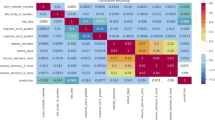Abstract
The Covid-19 pandemic, which required more people to work and learn remotely, emphasized the benefits of online learning. However, these online learning environments, which are typically used on an individual basis, can make it difficult for many to finish courses effectively. At the same time, online learning allows for the monitoring of users, which may help to identify learners who are struggling. In this article, we present the results of a set of experiments focusing on the early prediction of user drop out, based on data from the New Heroes Academy, a learning center providing online courses.
For measuring the impact of user behavior over time with respect to user drop out, we build a range of random forest classifiers. Each classifier uses all features, but the feature values are calculated from the day a user starts a course up to a particular day. The target describes whether the user will finish the course or not. Our experimental results (using 10-fold cross-validation) show that the classifiers provide good results (over 90% accuracy from day three with somewhat lower results for the classifiers for day one and two). In particular, the time-based and action-based features have a major impact on the performance, whereas the start-based feature is only important early on (i. e., during day one).
Access this chapter
Tax calculation will be finalised at checkout
Purchases are for personal use only
Similar content being viewed by others
Notes
References
Appanna, S.: A review of benefits and limitations of online learning in the context of the student, the instructor and the tenured faculty. Int. J. E-Learn. 7, 5–22 (2008)
Atzmueller, M.: Subgroup discovery. WIREs Data Min. Knowl. Discovery 5(1), 35–49 (2015)
Dekker, G., Pechenizkiy, M., Vleeshouwers, J.: Predicting students drop out: a case study. In: Proceedings of the Educational Data Mining, pp. 41–50 (2009)
Heng, K., Sol, K.: Online learning during COVID-19: key challenges and suggestions to enhance effectiveness. Cambodian Education Forum (2020)
Kassymova, G., Issaliyeva, S., Aigerim, K.: E-learning and its benefits for students. Pedagogics and Psychology, pp. 249–255 (2019)
Kloft, M., Stiehler, F., Zheng, Z., Pinkwart, N.: Predicting MOOC dropout over weeks using machine learning methods. In: Proceedings of the Workshop on Analysis of Large Scale Social Interaction in MOOCs, pp. 60–65. ACL, Doha, Qatar (2014)
Lemay, D.J., Bazelais, P., Doleck, T.: Transition to online learning during the COVID-19 pandemic. Comput. Hum. Behav. Reports 4, 100130 (2021)
Lemmerich, F., Ifl, M., Puppe, F.: Identifying influence factors on students success by subgroup discovery. In: Proceedings of Educational Data Mining (2010)
Malinen, S.: Understanding user participation in online communities: a systematic literature review of empirical studies. Comput. Hum. Behav. 46, 228–238 (2015)
Pittman, K.L.: Comparison of data mining techniques used to predict student retention. In: NSUWorks (2008)
Shayan, P., Rondinelli, R., Zaanen, M., Atzmueller, M.: Descriptive network modeling and analysis for investigating user acceptance in a learning management system context. In: Proceedings of the ABIS, pp. 7–13. ACM, Boston, MA, USA (2019)
Shayan, P., van Zaanen, M.: Predicting student performance from their behavior in learning management systems. Int. J. Inf. Educ. Technol. 9(5), 337–341 (2019)
Vitiello, M., Walk, S., Chang, V., Hernández, R., Helic, D., Gütl, C.: MOOC dropouts: a multi-system classifier. In: EC-TEL (2017)
Williams, B.: Participation in on-line courses - how essential is it? Educational Technol. Soc. 7, 1–8 (2004)
Zhang, Y., Oussena, S., Clark, T., Kim, H.: Use data mining to improve student retention in higher education - a case study. In: ICEIS (2010)
Author information
Authors and Affiliations
Corresponding author
Editor information
Editors and Affiliations
Rights and permissions
Copyright information
© 2022 The Author(s), under exclusive license to Springer Nature Switzerland AG
About this paper
Cite this paper
Shayan, P., van Zaanen, M., Atzmueller, M. (2022). Predicting User Dropout from Their Online Learning Behavior. In: Pascal, P., Ienco, D. (eds) Discovery Science. DS 2022. Lecture Notes in Computer Science(), vol 13601. Springer, Cham. https://doi.org/10.1007/978-3-031-18840-4_18
Download citation
DOI: https://doi.org/10.1007/978-3-031-18840-4_18
Published:
Publisher Name: Springer, Cham
Print ISBN: 978-3-031-18839-8
Online ISBN: 978-3-031-18840-4
eBook Packages: Computer ScienceComputer Science (R0)




